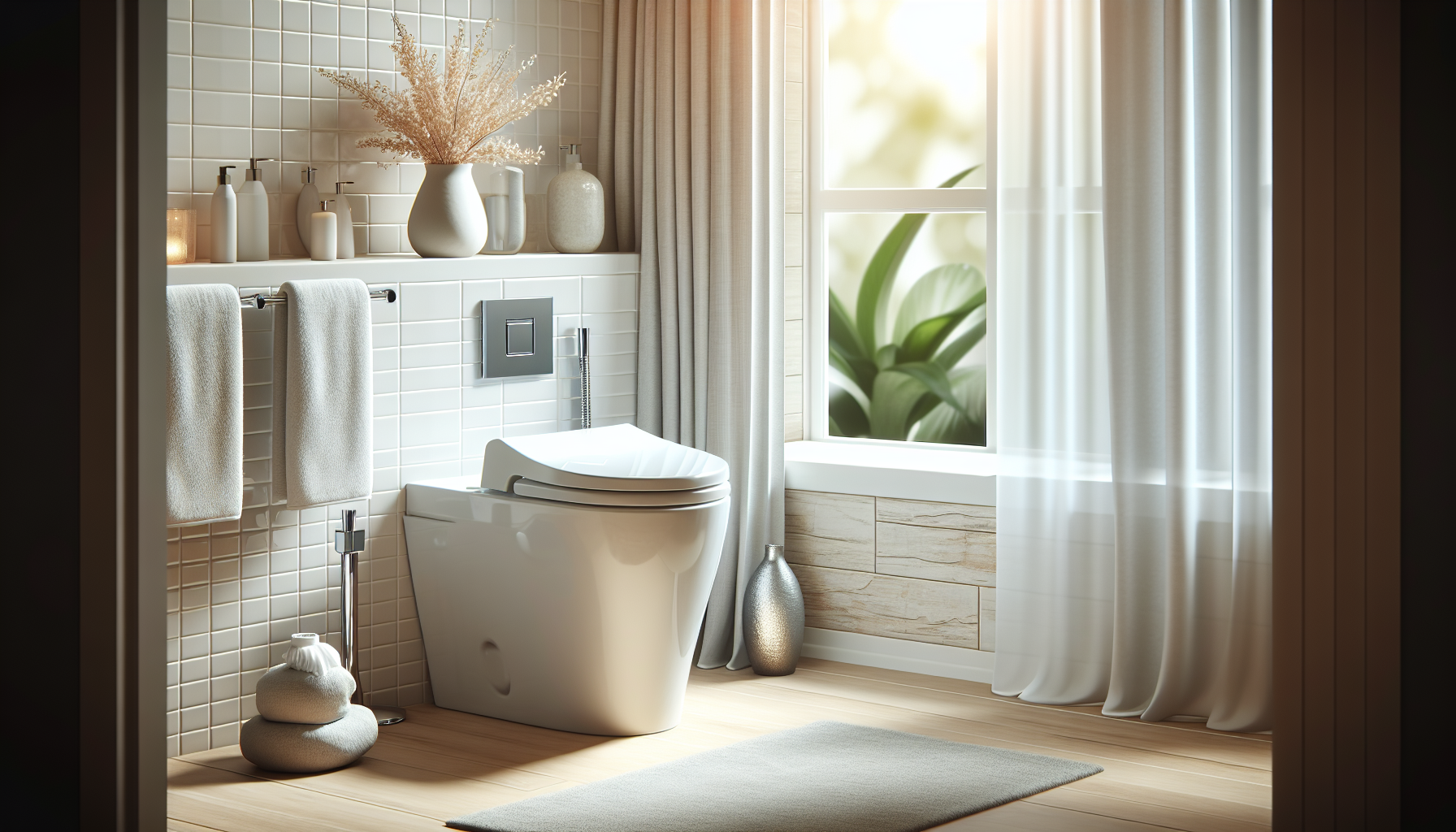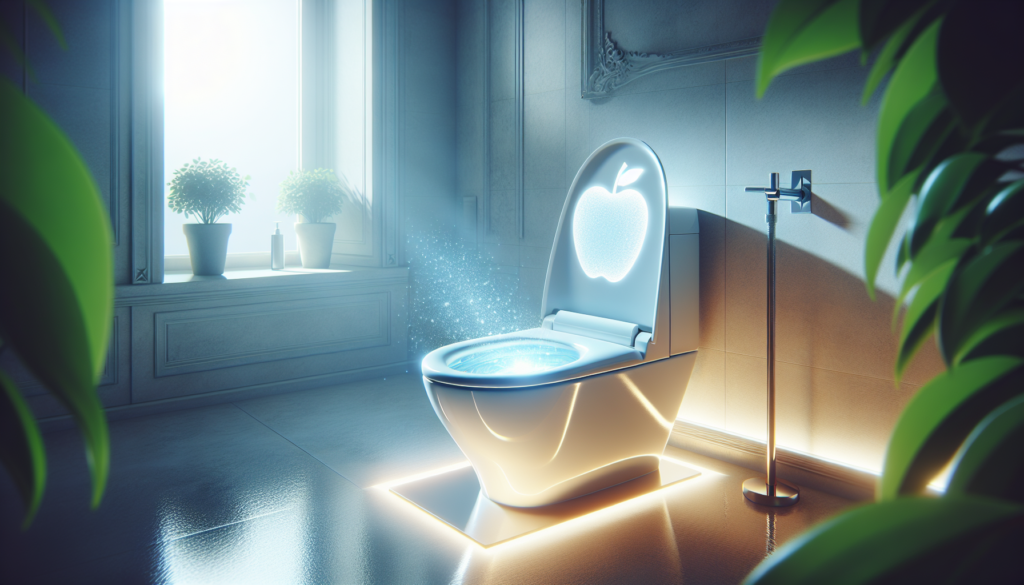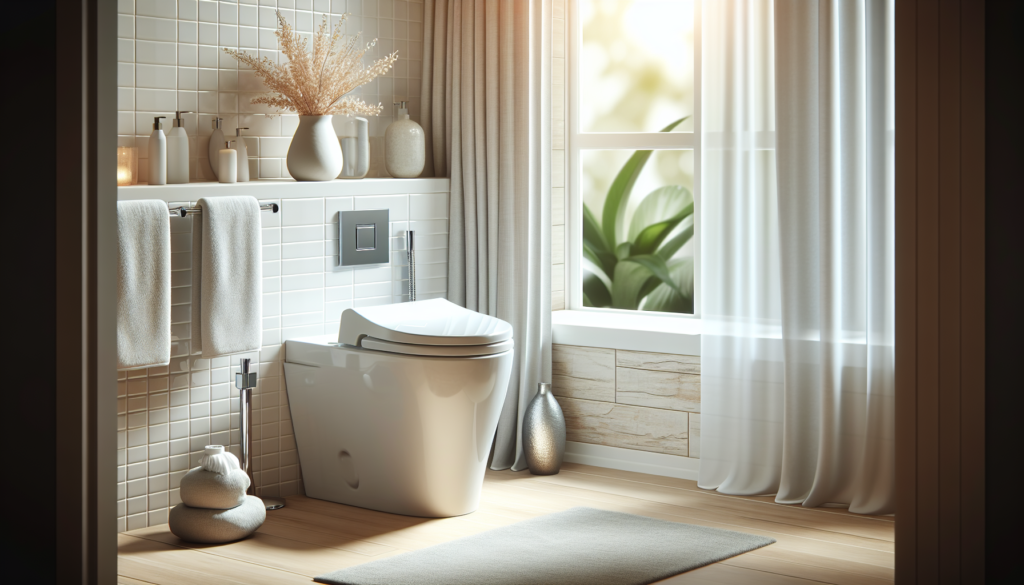In today’s article, we explore the question of whether bidets are recommended by healthcare professionals. Many individuals are curious about the potential health benefits of incorporating bidets into their personal hygiene routine. By examining the perspective of healthcare professionals, we can gain valuable insights into the effectiveness and advantages of bidets. So, let’s delve into this topic and discover whether bidets are indeed a recommended choice for our overall well-being.
Benefits of using bidets
Hygiene
Using a bidet provides a superior level of cleanliness compared to traditional toilet paper alone. Bidets use a gentle stream of water to cleanse the intimate areas, ensuring a more thorough and effective cleaning process. By removing any residue more effectively, bidets can help maintain optimal hygiene and leave you feeling fresh and confident.
Reduced risk of infections
Proper hygiene is essential in preventing infections, especially in sensitive areas like the genitals and anal region. Bidets offer a hygienic alternative to toilet paper, which can harbor bacteria and contribute to the spread of infections. By using a bidet, you can reduce the risk of conditions such as urinary tract infections and bacterial vaginosis, promoting overall health and wellbeing.
Gentler on the skin
Toilet paper can be abrasive and irritating, particularly for individuals with sensitive skin. Bidets provide a gentle and soothing cleanse, without the need for excessive wiping that can cause friction and discomfort. By using water instead of toilet paper, bidets help protect and care for your skin, keeping it clean and healthy.
Improvement for people with mobility issues
For individuals with mobility issues, such as the elderly or those with disabilities, proper hygiene can be challenging to maintain. Bidets offer an accessible solution that promotes independence and dignity. With easy-to-use controls and adjustable water pressure, bidets allow individuals to clean themselves effortlessly, eliminating the need for assistance and empowering them to maintain their personal hygiene with ease.
Bidets and anal health
Relief from hemorrhoids
Hemorrhoids can cause immense discomfort and pain, making everyday activities, including toilet hygiene, a challenge. Bidets provide relief for individuals with hemorrhoids by offering a gentle and soothing cleanse. The gentle stream of water helps clean the area without causing further irritation, providing much-needed comfort and alleviating symptoms.
Prevention of anal fissures
Anal fissures are small tears in the skin around the anus, often caused by straining during bowel movements. Bidets can reduce the risk of developing anal fissures by promoting easier and softer bowel movements. The gentle cleansing action of a bidet reduces the need for excessive wiping, minimizing the potential for further irritation and tearing.
Comfort for people with inflammatory bowel disease
Individuals with inflammatory bowel disease, such as Crohn’s disease or ulcerative colitis, often experience frequent trips to the bathroom and sensitive, inflamed skin. Bidets can offer comfort and relief by providing a gentle cleanse without aggravating the already irritated skin. By maintaining proper hygiene, bidets can alleviate symptoms and improve overall comfort for those with inflammatory bowel disease.
Bidets and urinary health
Prevention of urinary tract infections
Urinary tract infections (UTIs) can be painful and recurring for some individuals. Bidets can help prevent UTIs by ensuring proper hygiene after using the bathroom. By thoroughly cleansing the genital area with water, bidets help remove bacteria and prevent its entry into the urethra, reducing the risk of UTIs and promoting urinary health.
Beneficial for individuals with urinary incontinence
Urinary incontinence can be a challenging condition to manage, often leading to feelings of embarrassment and discomfort. Bidets offer a convenient solution by providing effective and efficient cleaning after bladder leakage. With the touch of a button, bidets cleanse and refresh without the need for excessive wiping, improving cleanliness and maintaining dignity for individuals with urinary incontinence.
Bidets and environmental impact
Reduced toilet paper usage
One of the significant benefits of bidets is their ability to significantly reduce toilet paper usage. By using water for cleansing, bidets minimize the need for excessive amounts of toilet paper. This reduction in toilet paper consumption not only saves trees but also reduces the carbon emissions associated with the production and transportation of toilet paper.
Water conservation
Contrary to popular belief, bidets are not water-intensive. In fact, bidets use much less water than the production and disposal of toilet paper. Traditional toilet paper production requires vast amounts of water, from the growing and harvesting of trees to the manufacturing process. By using bidets, you can contribute to water conservation efforts and help protect our planet’s precious resources.
Bidets and cost-effectiveness
Long-term savings on toilet paper
While bidets may require an initial investment, they can lead to significant long-term savings on toilet paper expenses. By reducing the reliance on toilet paper and using water for cleansing, individuals can save money by purchasing less toilet paper. Over time, these savings can add up and offset the cost of installing a bidet, making it a cost-effective investment.
Reduced medical expenses
Proper hygiene plays a crucial role in maintaining overall health and preventing infections. By using bidets, individuals can reduce the risk of infections and related medical expenses. The cost of treating conditions such as urinary tract infections, anal fissures, or hemorrhoids can be substantial. By prioritizing hygiene with the help of bidets, individuals can potentially avoid these healthcare expenses, leading to long-term cost savings.
Bidet usage for people with special needs
Elderly individuals
Elderly individuals often face mobility limitations or conditions that make maintaining personal hygiene challenging. Bidets can greatly benefit the elderly by providing a gentle and efficient cleansing method without the need for excessive bending, twisting, or reaching. With bidets, elderly individuals can maintain their independence, enhance their hygiene routine, and reduce the risk of infections or discomfort.
Individuals with disabilities
People with disabilities may have specific challenges when it comes to personal hygiene. Bidets offer a practical solution by providing a convenient and accessible cleansing method. With easy-to-use controls and customizable settings, bidets accommodate the needs of individuals with disabilities, ensuring they can maintain proper hygiene without assistance, thereby promoting independence and enhancing their overall wellbeing.
Bidets and cultural perspectives
Bidets in different countries
Bidets are widely used in various countries around the world, particularly in Europe, the Middle East, and Asia. In countries like Japan, bidets are considered a standard fixture in households and public facilities. Understanding the cultural diversity and acceptance of bidets highlights their established benefits and their integration into different societies.
Cultural acceptance and perceptions
Cultural perspectives on bidets can vary significantly. Some cultures embrace bidets as a hygienic and efficient method of cleansing, while others may view them as unnecessary or unhygienic. However, as awareness and education about the benefits of bidets increase, cultural acceptance is growing. By highlighting the advantages of bidets, individuals can help change perceptions and promote the adoption of bidet usage worldwide.
Common misconceptions about bidets
Bidets are unhygienic
One common misconception about bidets is that they are unhygienic due to the use of water. However, bidets actually offer a higher level of cleanliness compared to using toilet paper alone. The water used in bidets is clean and regulated, providing a gentle and thorough cleanse. Proper maintenance and cleaning of bidets ensure that they remain a hygienic and sanitary option for personal hygiene.
Bidets cause rectal issues
Contrary to popular belief, bidets do not cause rectal issues. In fact, bidets can be beneficial for individuals with conditions such as hemorrhoids or anal fissures. The gentle stream of water from bidets provides relief and promotes healing without the risk of further irritation or damage to the area. However, it is essential to use bidets appropriately and adjust the water pressure to a comfortable level.
Bidets are uncomfortable
Some individuals may mistakenly believe that bidets are uncomfortable or intrusive. However, bidets are designed with user comfort in mind. Modern bidets offer various features, such as adjustable water temperature and pressure, customizable settings, and ergonomic designs. With these advancements, bidets provide a comfortable and personalized cleansing experience for each individual user.
Healthcare professionals’ opinions on bidets
Positive views on bidets
Many healthcare professionals hold positive views on bidets and recognize their benefits. Bidets have been praised for their ability to improve personal hygiene, reduce the risk of infections, and provide comfort for individuals with specific medical conditions. The gentle cleansing action of bidets is often recommended by healthcare professionals as a safer and more effective alternative to traditional toilet paper.
Recommendations from doctors
Doctors frequently recommend bidets to their patients, emphasizing their advantages in maintaining proper hygiene and preventing infections. For individuals with conditions such as hemorrhoids, anal fissures, or urinary tract infections, bidets can provide significant relief and aid in the healing process. Doctors also recognize bidets as a valuable tool in promoting overall health and wellbeing for individuals of all ages and abilities.
Opinions of nurses and caregivers
Nurses and caregivers play a vital role in assisting individuals with their personal hygiene needs. Their experience and expertise make them aware of the challenges individuals face and the importance of maintaining proper hygiene. Many nurses and caregivers appreciate the benefits of bidets and the positive impact they can have on the individuals they care for. Bidets offer a more efficient and dignified way of cleansing, reducing the burden on caregivers and improving the overall care experience.
Factors to consider when choosing a bidet
Types of bidets
There are various types of bidets available in the market, each offering different features and functionalities. Some bidets are standalone fixtures, while others can be incorporated into existing toilets. Consider your specific needs and preferences when choosing between options such as handheld bidet sprays, bidet toilet seats, or bidet attachments. Assess the features, installation requirements, and overall compatibility with your existing bathroom setup before making a decision.
Installation and maintenance
Before purchasing a bidet, it is essential to consider the installation process and any necessary modifications to your bathroom. Some bidets require professional installation, while others can be installed as DIY projects. Additionally, maintenance and cleaning requirements should be taken into account. Ensure that you are comfortable with the installation process and are committed to regular cleaning and maintenance to ensure your bidet remains in optimal condition.
Additional features to consider
When choosing a bidet, consider any additional features that may enhance your cleansing experience. Adjustable water temperature, water pressure settings, nozzle positioning, and air drying capabilities are some of the features to look for. Some bidets also offer remote controls or touchscreen interfaces for ease of use. Assess your personal preferences and prioritize features that will contribute to your comfort and satisfaction with your bidet.
In conclusion, bidets offer a multitude of benefits ranging from enhanced hygiene and reduced risk of infections to improved comfort and convenience for individuals with special needs. Bidets have gained recognition among healthcare professionals for their positive impact on anal and urinary health, as well as their potential for cost savings and environmental conservation. By debunking common misconceptions and considering factors such as bidet types, installation, and additional features, individuals can make informed choices and embrace the advantages of bidets for their daily personal hygiene routine.



